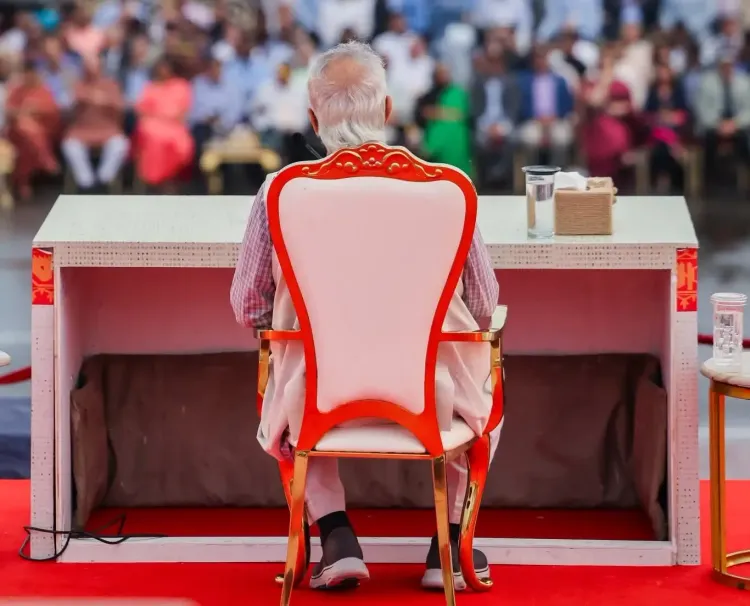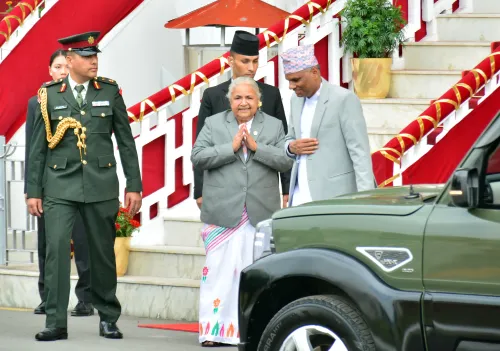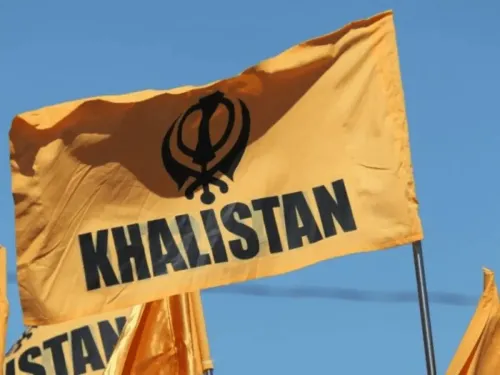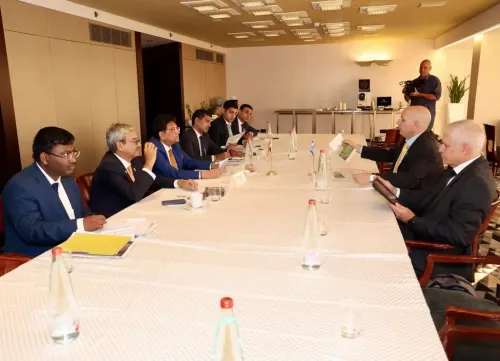Are False Murder Cases Sweeping Bangladesh Under Yunus' Government?

Synopsis
Key Takeaways
- Surge in false murder cases against dissenters in Bangladesh.
- Judicial independence is being compromised.
- Prominent activists are raising alarms about the climate of fear among judges.
- Calls for urgent reforms to ensure fair trials.
- The government is ignoring warnings from legal experts.
Dhaka, Nov 20 (NationPress) In Bangladesh, a rampant surge of false murder cases targeting dissenters, including leaders and activists of the Awami League, has emerged under the interim administration led by Muhammad Yunus, as highlighted in a recent report released on Thursday.
As of now, over 1,000 cases have been filed against minority rights activists and journalists, primarily instigated by political factions supportive of Yunus.
A report from the Eurasia Review cites prominent lawyer and rights advocate Sara Hossain, who previously cautioned about the systematic escalation of mob violence directed at the judiciary. She stated, "There is fear both within and beyond the judiciary. Judges often worry about potential backlash for their decisions. In such a fearful environment, who can deliver just verdicts? Who will even venture to issue an order?"
This sobering assessment serves as a profound indictment of the Yunus administration’s blatant manipulation of the judicial system. It reveals an unprecedented and calculated use of mob rule to undermine judicial independence, resulting in thousands of dubious mass cases and numerous instances of mob violence against dissenters, including Awami League leaders and activists within court premises. This is further exacerbated by an extensive ban on the party—all actions purportedly taken in the name of delivering justice to victims of the violence that occurred in July and August of last year, which resulted in the regime change.
Hossain’s calls for essential reforms to guarantee fair trials for the hundreds killed and thousands injured seem to have been ignored, as Yunus’ press office and advisors began a campaign to depict opposition leaders, including former Prime Minister Sheikh Hasina and her ministers, as "mass murderers," seemingly to influence the verdict's outcome.
Concerned about the retribution-driven actions over the past 14 months that have stripped dissenters of their right to a fair trial, British House of Lords member Alexander Charles Carlile issued a similar critique, revealing the dire implications of a judiciary motivated by vengeance.
“The International Crimes Tribunal system urgently requires reforms to meet international standards. The trials must be transparent and fair, strictly adhering to legal and constitutional obligations,” he stated.
Although this warning was issued shortly before the verdict in the high-profile case involving Hasina—an event that garnered global attention—the interim government once again chose to ignore it.
“Instead of halting these regressive measures that have turned the trial process into a mockery, the Yunus regime has instead implemented a series of actions that further jeopardize international standards and fairness,” the report concluded.









